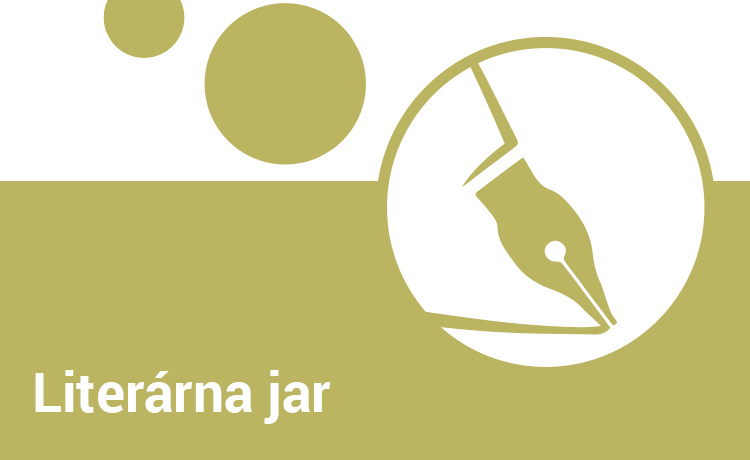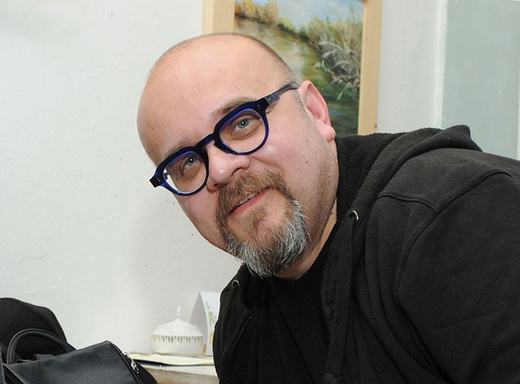In the nineties, there were two or three literary events a month in Bratislava, now in the season from September to December there are five of them in one day, and I often moderate seven book launches a week. That has little to do with enjoyment anymore, and to cope with it, I turn on speed reading mode. However, in the long run, it turns joy into routine. And that’s bad. I try to read to our little son every night before bed. He likes it, but I’m still waiting for him to finally open a book on his own – instead of sitting at the computer. The other day he said that he finished reading the new Walliams at school because… he was bored. And it hit me – what he called boredom is actually fasting. And without that occasional “boredom” it’s hard to be happy. Daniel Hevier put it very well when he said: “We have to be at least a little rich to be able to buy books. And we have to be a little poor to be able to finally start reading them.”
Do you think that contemporaries read enough books? And how much is enough?
There is no clear answer to this. I myself feel that I read little, although I engage in this activity every day. This year, as a juror for the Anasoft Litera Literary Award, I had to skim through at least 150 books submitted. Out of this number, I enjoyed maybe six or seven. However, I still buy new titles, I receive at least five or six books from different publishers every week, and my passion is also searching the Internet for hard-to-find works. This also illustrates today’s consumer era. People may be reading less, but they are still buying books. Publishers have even spoken in recent years about the enormous oversaturation of our book market. And so an interesting paradox arises. Students have increasingly difficulty reading with comprehension, most people complain that they do not have time to read – and yet – the number of books sold is increasing from year to year. Strange, isn’t it?
So what is the significance of time spent with a book for us?
Again, it’s individual, sometimes it’s just about rest and relaxation. Other times it’s about finding a new perspective on the world or discovering new worlds. Finding answers to important questions…the goal probably shouldn’t be a race in the number of books read. But slow, thorough reading combined with reflection. Of course, reading is also fun, but it’s important that we also get to the works that have something to offer us – they allow, for example, to understand the current time and society and can be discussed polemically.
Let’s imagine someone who really has no need to pick up a book, finds it a waste of time, or is too lazy to turn the pages and concentrate, or believes that they simply don’t have time for it, or lives in the idea that reading a magazine is essentially the same. Is there any point in persuading?
It has and it has not. Reading is not a duty. I believe that it is important to convey the passion for everything that reading has to offer, especially to those who are interested in it. But it doesn’t hurt to show it to people who have completely different priorities.
Many films are made based on a script based on an already published and usually very popular book. Someone who has seen the film and liked the theme may also reach for the book. Or vice versa, someone reads the book and then sees the title in the cinema program and is interested in how their ideas differ from the director’s ideas. And someone sees the title, knows that it is written according to the book model and decides in advance. What would be your decision in this case. The book first, or the film?
I consider it a great success if I can catch a new film or go to the theater from time to time. Film adaptations are usually a reduction of the literary original, but I have also seen a few films that have surpassed it. For example, Fight Club.
Why do you think literary events are important, for example our Literary Spring, book signings, public readings, discussions with authors?
From my answers so far, it might seem that I am starting to be slightly allergic to literary events. However, it is not the events themselves, but rather their inflation. That is why sometimes I prefer to miss some and stay home. The last time I had such a dilemma was when the Czech novelist Jan Němec was in Bratislava with his book The Impossibility of a Love Novel. But in principle, I like to listen to an author whose work interests me – I am curious about what led him to it, how he thinks about writing, what difficulties he had to struggle with, and so on. Some such events have remained in my memory for a lifetime.
My conflicting feelings also stem from the fact that I am rather introverted, so I enjoy debating in public, but at the same time I have to overcome a great deal of sociophobia. However, every such event is preceded by thinking about the author and his book. And when I suddenly feel a combination of joy, curiosity and anticipation during the preparation, I know that it will probably be good. I also enjoy various smaller literary festivals, where the organizers prepare meetings with authors whom I often don’t know at all – a lot of new ideas can be discovered there.
Finally, perhaps a question that bothers us in crowded bookstores: How do I choose the right book for me?
As part of my work, I collect a lot of tips for good books. But then I often start reading them and say to myself, OK, this is probably a good book, but not for me. It’s good, but it doesn’t concern me, it doesn’t talk about things that interest me. However, some works manage to wrap themselves around my finger despite that. Most recently, for example, the prose of Katka Kucbelová Čepiec. So, I’ll give it to others for recommendations and then I hope that I’ll catch on.
Dagmar Blažová talked to Dad Nagy

